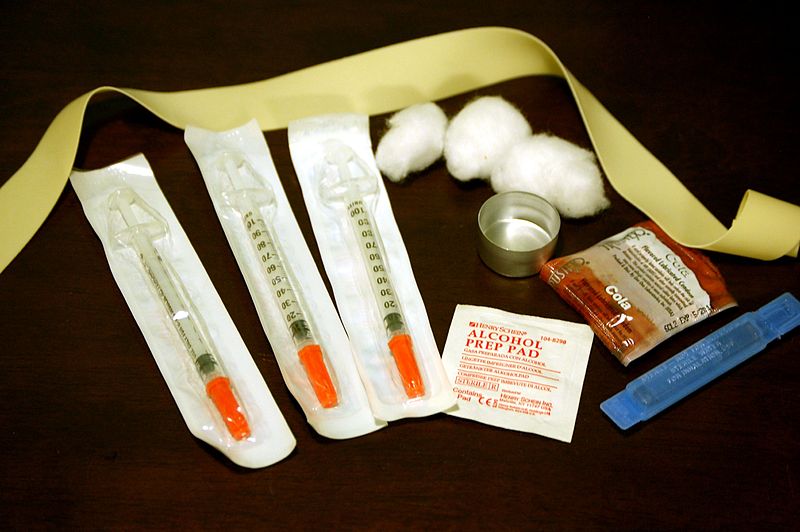
The Fredericton needle exchange is helping to keep dirty needles off the streets and reduce cases of HIV and Hepatitis C.
After almost 15 years of providing these services, the needle exchange provided by AIDS New Brunswick has grown. Each year, AIDS N.B. serves 300 people and distributes around 100,000 needles. With a needle return rate of 80 to 90 per cent, it has been largely successful.
Matt Smith, a St. Thomas grad now working for AIDS N.B., said some people think these exchanges promote drug use and addiction, but that’s not true.
“Needle exchanges don’t promote drug use just like condoms don’t promote sex,” said Smith.
In fact, users often seek help after using this resource.
“They work. They do exactly what they’re supposed to,” he said.
Nevertheless, there is still apprehension. But as police now rarely get complaints of needles being left around, Smith said people should appreciate the service.
“We forget that [drug users] are people, and I feel very fortunate that I’m in a position that I get to know them.”
Smith said needle exchanges save a lot of money.
Sixty-three per cent of Hepatitis C cases are caused by injection drug use, according to the Public Health Agency of Canada. It costs $70, 000 to treat an individual with Hep C, but it also costs the same amount per year to run the needle exchange. That means if they save just one person from contracting Hep C, the facility has paid for itself.
Smith knows it’s important to reach out to anyone who may need sterile drug equipment, including needles, alcohol swabs and safe inhalation pipes.
“What’s really important is that we put it out there,” he said. “We’re not judging them. It’s not my business if they’re doing drugs.”
Because of the stigma of drug users, Smith stresses that the facility is non-judgemental and anonymous. While 300 individuals use the needle exchange annually, user surveys show most users pick up needles for a friend as well, meaning at least twice as many people benefit from the exchange.
Even though there are likely others who are afraid or ashamed to use this program because of stigma, the Fredericton needle exchange has made a positive impact in the community.
To any students who use drugs, Smith advised, “If you can, do it as safe as possible. Don’t share equipment.”
Students who want to volunteer for the needle exchange can fill out an application at http://www.aidsnb.com.
